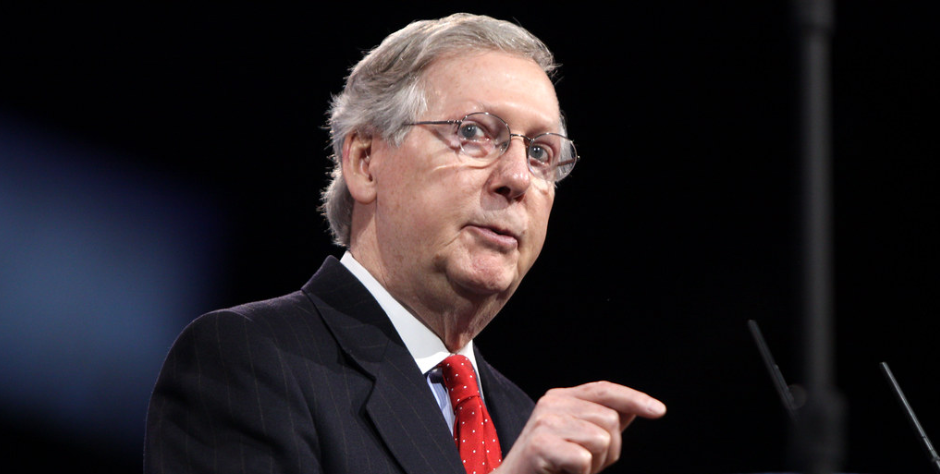White House, Congress head toward new round of COVID-19 talks as pressure grows
"At the moment, the gap between our two parties in the negotiations is about priorities and about scale." As the four negotiators gathered in the Capitol, differences remained on key issues, including unemployment benefits for workers made jobless by the epidemic, as well as liability protections for businesses, a moratorium on housing evictions, and funding for schools, state and local governments and election security. Senate Majority Leader Mitch McConnell, who has not joined the talks, said he would support any deal the two sides agreed on after members of his own caucus last week rebelled against his $1 trillion proposal.

- Country:
- United States
Pressure mounted on Tuesday on congressional Democrats and the White House to reach a deal on a new round of coronavirus relief as the economy reeled from the growing financial and human toll of a pandemic that has killed more than 156,000 Americans. After a week of almost daily negotiations and with no deal in sight, Senate Democratic leader Chuck Schumer sought to underscore progress that has been made by saying that he, House Speaker Nancy Pelosi, Treasury Secretary Steven Mnuchin and White House Chief of Staff Mark Meadows have moved closer in several areas.
"We remain far apart on a number of issues. But we're finally moving in the right direction," Schumer said on the Senate floor. "At the moment, the gap between our two parties in the negotiations is about priorities and about scale." As the four negotiators gathered in the Capitol, differences remained on key issues, including unemployment benefits for workers made jobless by the epidemic, as well as liability protections for businesses, a moratorium on housing evictions and funding for schools, state and local governments and election security.
Senate Majority Leader Mitch McConnell, who has not joined the talks, said he would support any deal the two sides agreed on after members of his own caucus last week rebelled against his $1 trillion proposal. But the White House accused Democrats of "making an absolute mockery" of negotiations and threatened unilateral action if a deal is not reached soon.
"We're still engaging with them, but this president has been clear: He is ready to act on this," said White House Press Secretary Kayleigh McEnany, who claimed that Mnuchin and Meadows had made four offers during talks while Democrats had made none. McConnell was also considering whether to send lawmakers home this week if there is no deal reached. The House is currently not in session.
'DON'T HAVE ANSWERS' But after Mnuchin and Meadows discussed talks with Senate Republicans over lunch, some Republicans pushed back on the idea of leaving town.
"Basically what Meadows and Mnuchin said is that the Democrats still do not appear to be serious about reaching a negotiated outcome, and so we're prepared to be in session until we get one," said Republican Senator John Cornyn. Republican Senator Lisa Murkowski has begun discussions with Democrats on ways to make progress toward a coronavirus bill. "We don't have answers for people right now," she told reporters.
Schumer blamed the lack of an agreement on Republican unwillingness to accept that the United States needs a robust response from Congress to meet the mounting health and economic challenges posed by the coronavirus pandemic. Federal Reserve officials are urging Congress and the White House to help the struggling U.S. economy. Tens of millions of Americans have lost their jobs during the crisis.
Congress passed more than $3 trillion in relief legislation early in the pandemic. But lawmakers missed a deadline last week to extend the $600 per week in enhanced unemployment payments that have played a key role in propping up the economy. Democrats are pressing for another $3 trillion that would retain the $600 benefit and add nearly $1 trillion in assistance for state and local governments.
Senate Republicans, who have not taken part in the White House talks with Democrats, have proposed a $1 trillion package that would slash the unemployment payment to $200 a week and eventually move to replace 70% of wages. But McConnell emphasized there was no Republican agreement on what unemployment benefits should be.
"If you're looking for a total consensus among Republican senators, you're not going to find it," he told reporters. Republicans say the $600 benefit - which is on top of state unemployment payments - discourages people from taking lower-paying jobs. A Fed official on Monday said there was little evidence to support that view.
(This story has not been edited by Devdiscourse staff and is auto-generated from a syndicated feed.)
ALSO READ
As foreign leaders urge US Ukraine support, Republicans look to Trump
World News Roundup: As foreign leaders urge US Ukraine support, Republicans look to Trump; Despair makes young US men more conservative ahead of US election, poll shows and more
Uncertainty surrounds US Republicans' plan for separate Ukraine, Israel aid bills
Uncertainty surrounds US Republicans' plan for separate Ukraine, Israel aid bills
Arizona Republicans uphold 1864 abortion ban, Democrats still seek repeal










